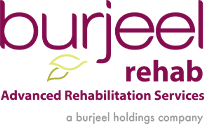Interventional pain medicine and manual therapy offer a dynamic and integrated approach to managing pain and promoting healing for individuals with musculoskeletal conditions and chronic pain. By combining advanced interventional techniques with hands-on manual therapy, this comprehensive approach targets pain at its source and addresses underlying musculoskeletal dysfunctions.
Significance of Interventional Pain Medicine and Manual Therapy:
Precise Pain Management
Interventional pain medicine utilizes minimally invasive procedures, such as nerve blocks, epidural injections, and radiofrequency ablation, to target specific pain generators and provide targeted pain relief. These procedures help reduce inflammation, block pain signals, and promote healing in affected tissues.
Hands-On Treatment
Manual therapy techniques, including joint mobilization, soft tissue manipulation, and therapeutic massage, address musculoskeletal imbalances, restrictions, and dysfunctions contributing to pain and dysfunction. Manual therapy helps improve joint mobility, reduce muscle tension, and restore proper biomechanics, enhancing overall function and well-being.
Multimodal Approach
The integration of interventional pain medicine and manual therapy offers a multimodal approach to pain management and rehabilitation. By combining interventional techniques to alleviate pain with manual therapy to address underlying musculoskeletal issues, this comprehensive approach maximizes treatment effectiveness and promotes long-term healing.
Functional Restoration
Manual therapy focuses on restoring functional movement patterns and optimizing biomechanics to improve overall function and performance. By addressing muscle imbalances, joint restrictions, and postural abnormalities, manual therapy helps individuals regain mobility, stability, and strength, facilitating a return to normal activities and improved quality of life.
Patient-Centered Care
Interventional pain medicine and manual therapy prioritize patient-centered care, with treatment plans tailored to everyone's unique needs, goals, and preferences. Healthcare providers collaborate with patients to develop personalized treatment strategies that address both the physical and emotional aspects of pain and dysfunction, empowering individuals to actively participate in their recovery..
Long-Term Wellness
Beyond symptom management, interventional pain medicine and manual therapy aim to promote long-term wellness and functional independence. By addressing the root causes of pain and dysfunction, individuals can experience sustained relief, improved function, and enhanced quality of life, allowing them to engage fully in daily activities and enjoy an active, pain-free lifestyle.
Approaches to Support Interventional Pain Medicine and Manual Therapy:
Comprehensive Assessment
Undergo a comprehensive evaluation by a multidisciplinary team of healthcare professionals, including pain specialists, physiatrists, physical therapists, and manual therapists, to assess your pain condition, musculoskeletal function, and treatment goals.
Individualized Treatment Plan
Collaborate with your healthcare providers to develop a personalized treatment plan that combines interventional pain procedures with manual therapy techniques tailored to your specific needs and preferences.
Active Participation
Take an active role in your treatment by attending scheduled appointments, following prescribed exercises and home care instructions, and actively participating in your rehabilitation program. Your commitment to your treatment plan is essential for achieving optimal outcomes
Open Communication
Maintain open and honest communication with your healthcare providers, sharing any concerns, questions, or changes in symptoms that arise during treatment. This allows your healthcare team to adjust your treatment plan as needed to optimize your progress and comfort.
Lifestyle Modification
Adopt healthy lifestyle habits, such as regular exercise, proper nutrition, stress management, and adequate rest, to support your overall health and well-being. Lifestyle modifications complement interventional pain medicine and manual therapy, promoting long-term wellness and reducing the risk of future pain episodes.


